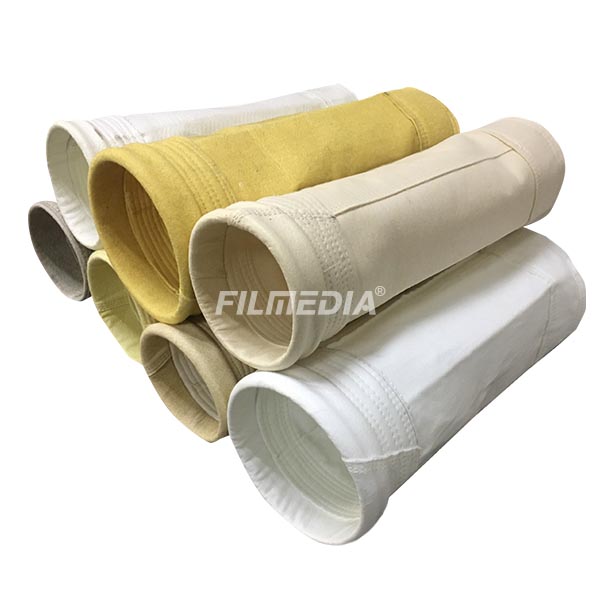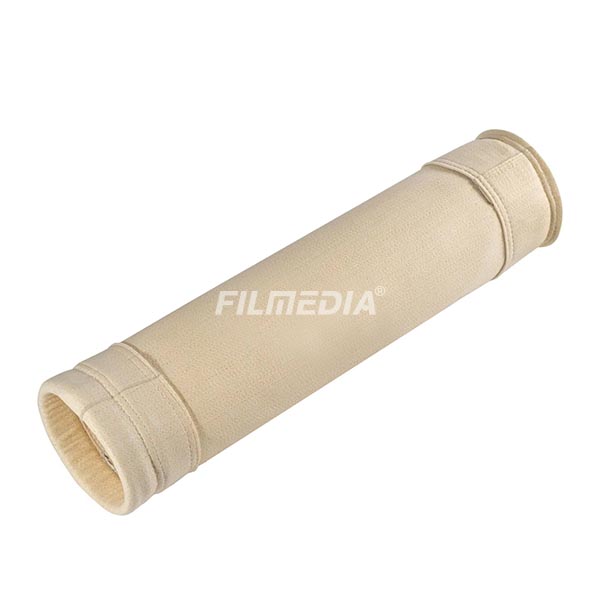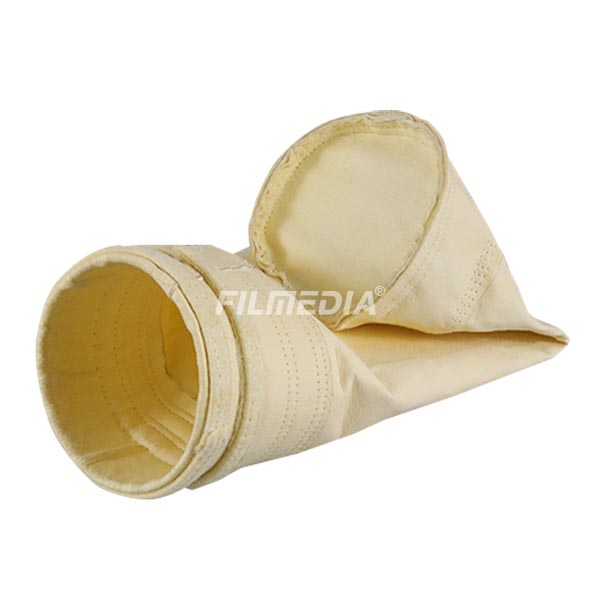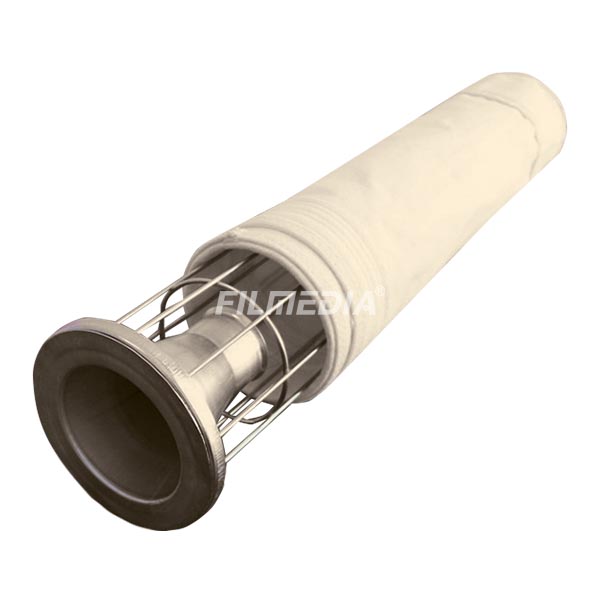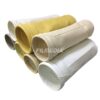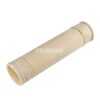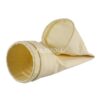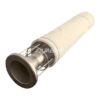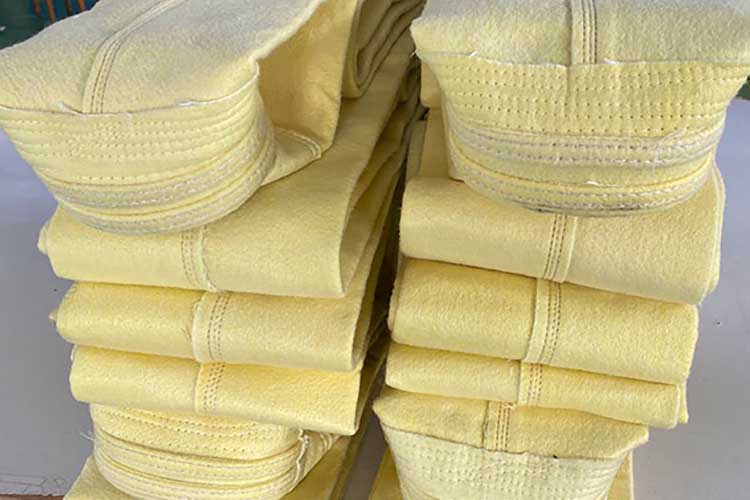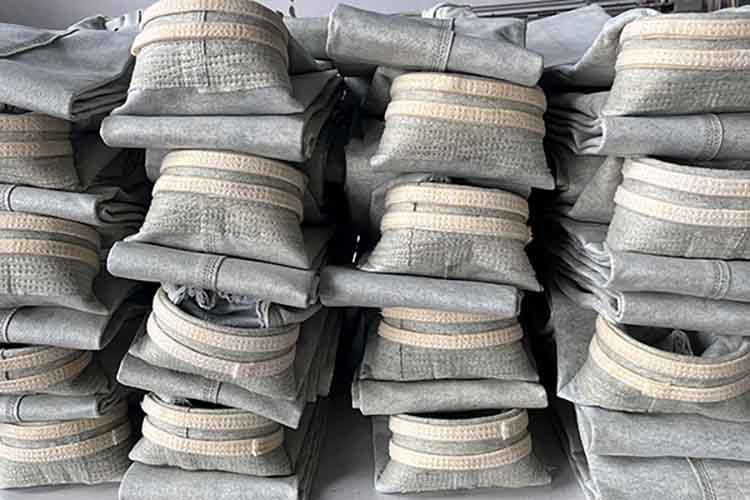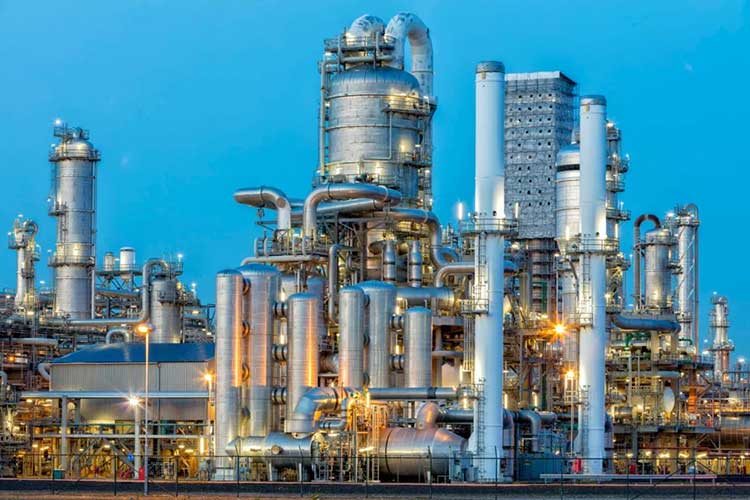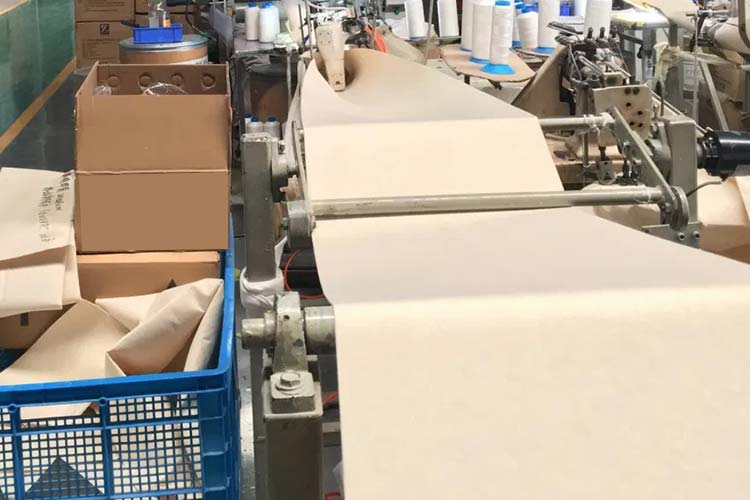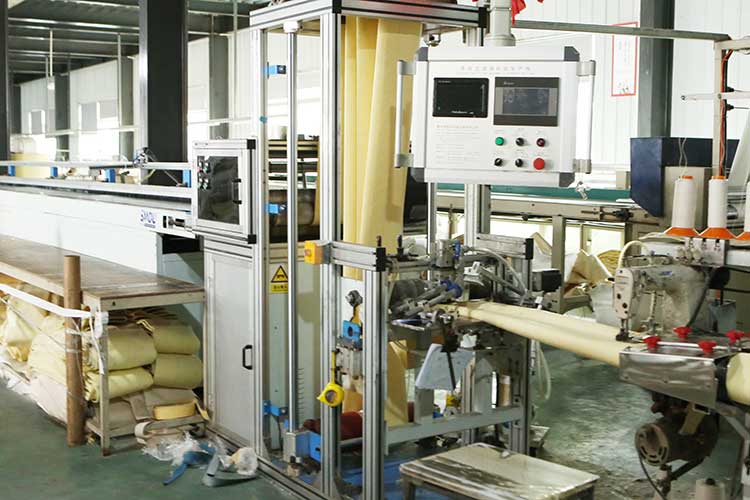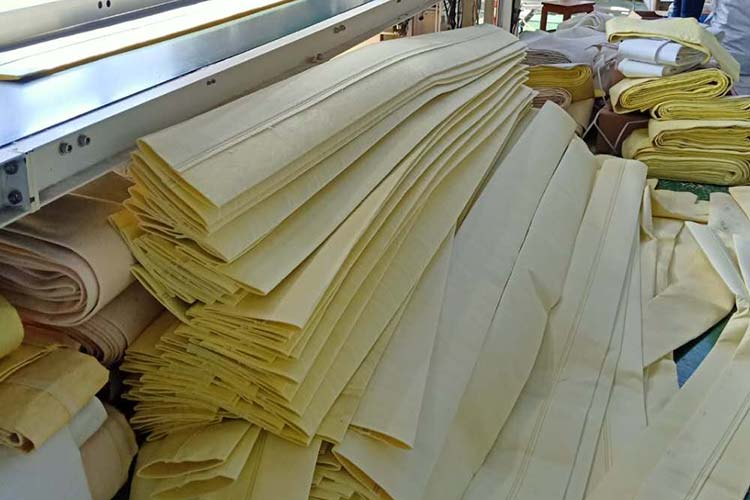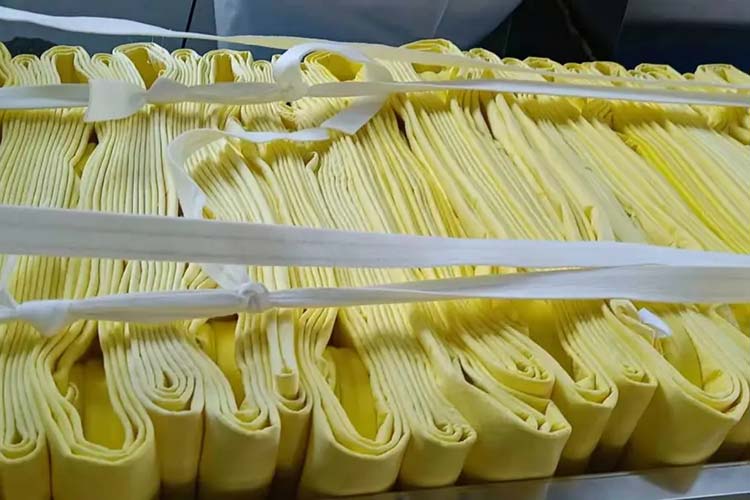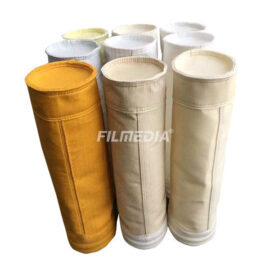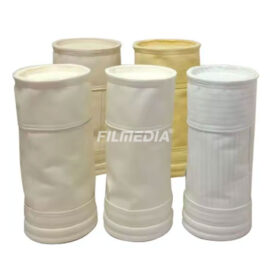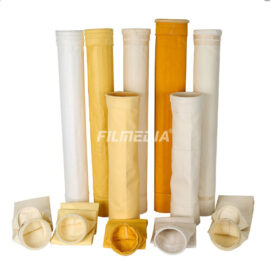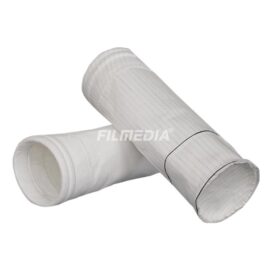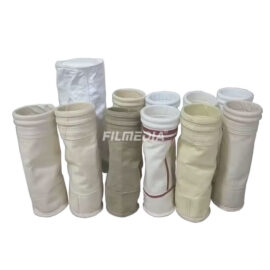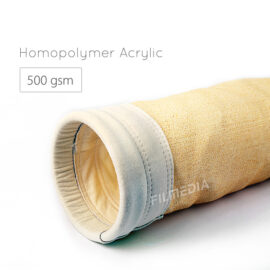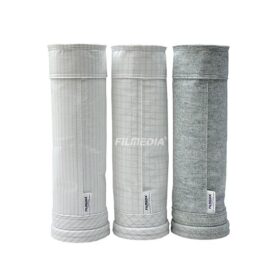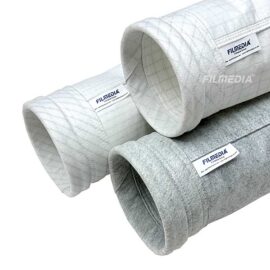FMS filter bags are a new type of high temperature resistant filter material developed for dry dust removal of blast furnace gas. They are made of two or more high temperature resistant fibers mixed or layered to achieve higher and newer physical and chemical properties. Usually, P84 fiber is added to the glass fiber needle felt to make the felt layer denser, the entanglement between fibers is enhanced, and it can cope with higher filtration wind speeds. It has the characteristics of high strength, acid and alkali corrosion resistance, wear resistance, and bending resistance. After different surface chemical treatments and post-processing technologies, it also has the functions of easy cleaning, waterproof, and oil resistance.
Description
About FMS Filter Bags
- Materials: FMS filter bags are often made from materials like polyester, polypropylene, aramid (Nomex), or other specialized fibers depending on the application’s temperature and chemical requirements.
- Efficiency: These filter bags are designed to provide high filtration efficiency, capturing fine particles and ensuring clean air or fluid output.
- Design: They come in various designs, including different shapes, sizes, and types of closures (snap bands, rings, etc.), to fit different types of baghouses or filtration systems.
- Temperature Resistance: Depending on the material, FMS filter bags can withstand varying temperature ranges, making them suitable for different industrial environments.
- Chemical Resistance: Some FMS filter bags are treated or made from materials that offer resistance to chemicals, ensuring longevity and performance in harsh conditions.
VS Fiberglass Felt Filter Bags
- Excellent temperature resistance, up to 260 degrees.
- Wear resistance, resistance to winding, and excellent folding resistance.
- Significant improvement in mechanical strength.
- Initial resistance and reduced running resistance.
- Filtration efficiency is improved.
- Filter wind speed increase.
- Significantly improved service life.
- Adaptability to dust.
Specifications
| Material | Alkali-free glass fiber chopped yarn, aramid, P84. |
| Weight (g/㎡) | 800 |
| Thickness (mm) | 2.6 |
| Working temperature (instant) | 280℃ |
| Working temperature (long-term) | 100~200℃ |
| Breaking strength (warp) | 400N/5×20cm |
| Breaking strength (weft) | 1600N/5×20cm |
| Diameter size (mm) | 100, 125, 130, 150, 18, 250, ect. |
| Filter precision (µm) | 5, 10, 25, 50, 80, 100, 150, 200, 250, 300, 400, 600, 800, 1,000, 1,250. |
| Acidity | Excellent |
| Alkalinity | Excellent |
| Breathability (m³/㎡.min) | 12~16 |
| Post-processing method | Impregnation, drying, lamination, waterproofing. |
Post-treatment
For the material of FMS filter bag, we can treat it with different post-processing according to different working conditions. There are mainly the following post-processing treatments:
- PTFE Impregnation.
- PTFE Membrane.
Filmedia® Processing Technology for FMS Filter Bags
Filter Bag Mouth
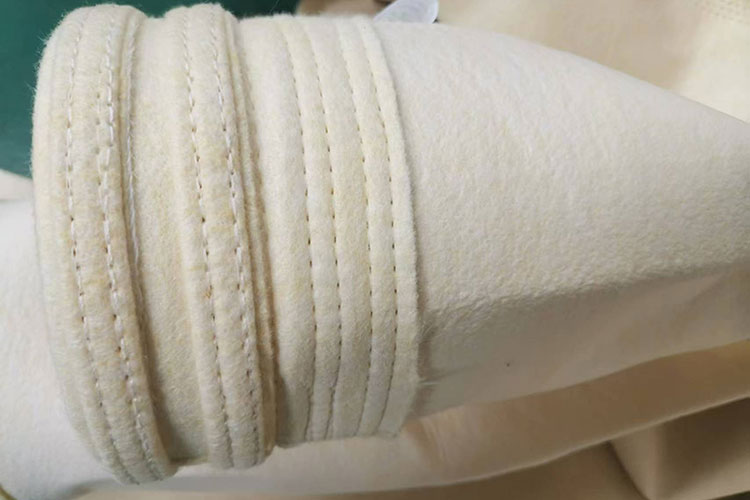
- A stainless steel spring ring is installed, the bag head is the external interface, the vertical seam edge and the oblique seam line, and the outer layer is wrapped with filter material.
Filter Bag Body
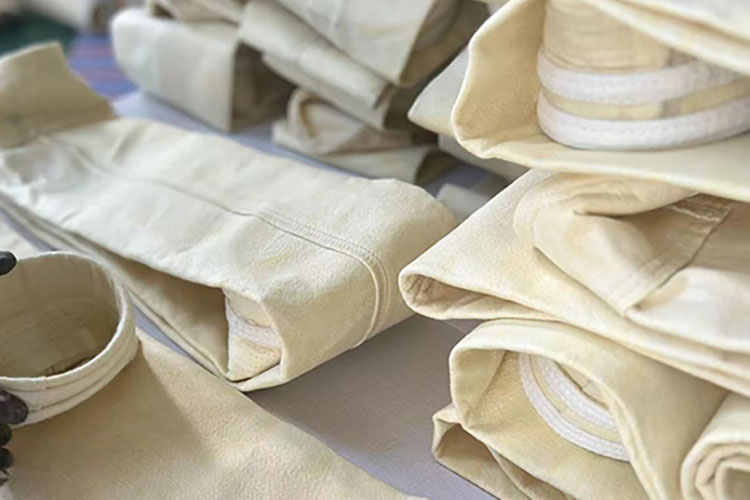
- The filter bag mouth and the filter bag body are connected with a single single needle thread and two double needle threads.
- The bag body is sewn by a filter material crimper with three needles and six threads, the stitch length is 28-35 stitches/10cm, and the width is 6-9mm.
- The bottom material of the bag body should be turned outward and upward and have a 100mm bag bottom reinforcement layer.
- The edge material of the reinforcement layer is turned inward and sewn with double needles.
- The three-needle seam on the seam surface of the filter bag body should be vertical to the bag mouth without bending.
Filter Bag Bottom
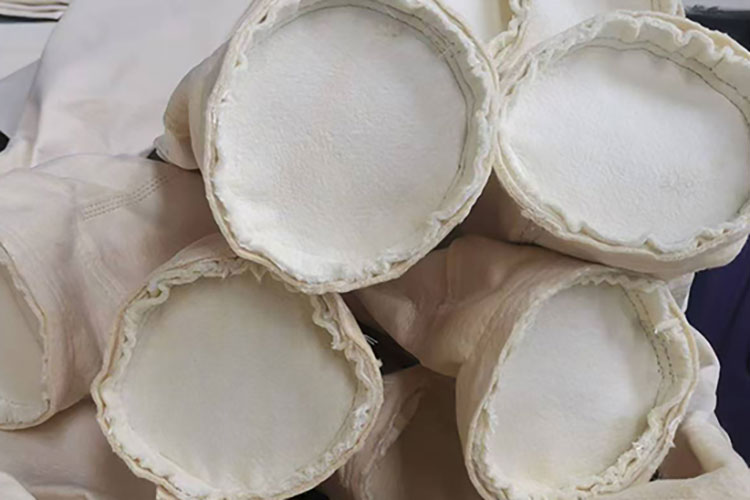
- The filter bag body and the filter bag bottom are sewn with double or three needles.
- The bottom edge of the bag body and the bag bottom are 10-12mm apart.
- The bottom of the bag body can stand upright, and there is a reinforcement layer at the bottom of the filter bag.
Applications
FMS filter bags are widely used in various industries where high temperatures and chemically aggressive dust collection conditions exist, making them a reliable choice for industrial filtration applications. These include air filtration, liquid filtration, petrochemicals, food and beverage production, pharmaceutical industries, electronic manufacturing, and more. They are used to remove different types of pollutants such as dust, smoke, chemicals, microorganisms, and more.
Quality Assurance
If there have any quality problems with products, we are willing to be replaced free. We collaborates with professionals from various higher education institutions to overcome technological barriers. Each engineer in our team tailors the best quality technical solutions and guidance for clients. We consider product quality as the sole factor for the survival of the enterprise, strictly controlling the factory testing process, and providing customers with world-class products. In the production process, we strive for excellence and pay attention to every detail. Every key aspect of the product undergoes 100% testing, ensuring that each delivered product is of the highest quality, allowing customers to use our products with confidence.

